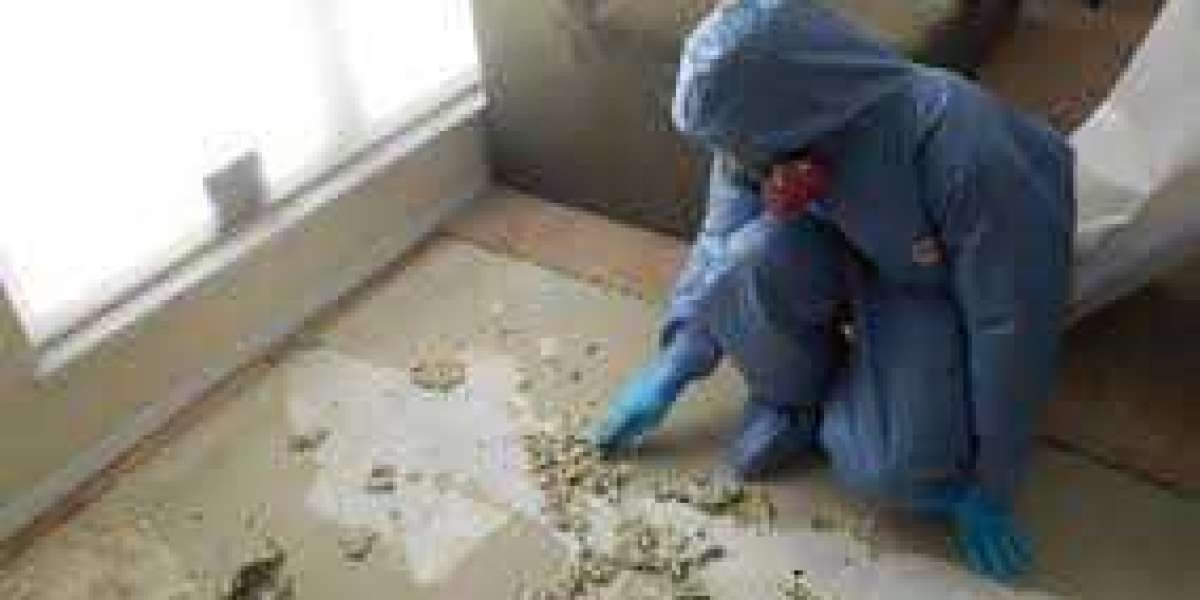Trauma cleanup, also known as biohazard cleanup, is a specialized service designed to safely clean and restore areas affected by incidents such as accidents, suicides, homicides, unattended deaths, and other situations involving blood or bodily fluids. Unlike standard cleaning, trauma cleanup requires professional expertise, strict safety protocols, and an understanding of the emotional impact these events have on families and communities.
What is Trauma Cleanup?
Trauma cleanup involves the removal and decontamination of biohazardous materials from a location after a traumatic incident. This includes blood, bodily fluids, and other potentially infectious materials. The primary goal is to prevent the spread of disease, restore the space to a safe condition, and help families and organizations cope with the aftermath of traumatic events.
These services are essential because improper cleaning of blood or biohazardous materials can lead to serious health risks. Pathogens such as HIV, hepatitis B and C, and other bacteria can survive in contaminated areas if not treated correctly. Professional trauma cleanup companies use specialized equipment, disinfectants, and protective gear to ensure complete sanitization.
Situations Requiring Trauma Cleanup
Trauma cleanup services are required in a variety of scenarios, including:
Accidental Deaths – When someone dies unexpectedly due to a fall, overdose, or other accidents, the area may be contaminated and unsafe.
Suicides and Homicides – These situations often leave biohazardous residues that require thorough cleaning by trained professionals.
Unattended Deaths – If a person passes away alone, decomposition can create biohazard risks that are unsafe for untrained individuals to handle.
Infectious Disease Incidents – Trauma cleanup can also apply to locations contaminated with highly infectious pathogens that require careful decontamination.
Crime Scenes – Police and investigative personnel often rely on trauma cleanup services after forensic examination to ensure public safety.
The Importance of Professional Trauma Cleanup
Professional trauma cleanup is crucial for several reasons:
1. Safety and Health
Exposure to bloodborne pathogens or infectious materials can pose serious health risks. Trauma cleanup specialists are trained to use personal protective equipment (PPE) such as gloves, masks, and full-body suits to prevent contamination. They also follow strict protocols to disinfect and remove hazardous materials safely.
2. Proper Disposal
Biohazardous waste cannot be disposed of in regular trash. Trauma cleanup companies follow federal, state, and local regulations for the safe disposal of contaminated materials, including clothing, furniture, and medical waste. This ensures compliance with health and safety standards while minimizing environmental risks.
3. Emotional Support and Sensitivity
Traumatic incidents are emotionally challenging for families and communities. Trauma cleanup teams are trained to handle these situations with professionalism and empathy. Their presence allows loved ones to grieve and recover while the environment is restored safely.
4. Comprehensive Restoration
Trauma cleanup goes beyond basic sanitization. Specialists also focus on restoring the affected area to its pre-incident condition. This may include carpet and upholstery cleaning, odor removal, and structural disinfection. Advanced techniques like ozone treatment and antimicrobial cleaning are often used to ensure a complete restoration.
Steps Involved in Trauma Cleanup
Professional trauma cleanup typically follows a systematic process:
Assessment – The team evaluates the scene, identifies hazards, and develops a cleanup plan.
Containment – Contaminated areas are isolated to prevent the spread of pathogens.
Removal of Biohazard Materials – Blood, bodily fluids, and contaminated items are safely removed and transported for proper disposal.
Deep Cleaning and Disinfection – Using hospital-grade disinfectants and specialized equipment, all surfaces are thoroughly cleaned.
Odor Removal – Persistent odors from decomposition or biohazards are neutralized using advanced techniques.
Final Inspection – The site is inspected to ensure it meets safety and sanitation standards.
Choosing the Right Trauma Cleanup Service
Selecting a reputable trauma cleanup company is essential. Here are key factors to consider:
Certification and Training: Ensure the team is certified in biohazard remediation and follows OSHA standards.
Experience: Companies with extensive experience handle complex scenarios more effectively.
Sensitivity: Choose a team that demonstrates empathy and professionalism in dealing with families.
Availability: Trauma incidents require immediate attention; 24/7 emergency services are critical.
Comprehensive Services: Look for providers who offer complete cleanup, restoration, and odor removal.
Trauma Cleanup and Legal Considerations
Some trauma cleanup scenarios involve legal implications, especially in cases of unattended deaths or crime scenes. Professional cleanup companies coordinate with law enforcement and insurance providers to ensure that documentation and procedures comply with legal requirements. This protects both the property owner and the cleanup team from potential liability.
Conclusion
Trauma cleanup is a vital service that combines safety, technical expertise, and compassion. It ensures that hazardous environments are properly sanitized, reduces health risks, and helps families and communities heal after traumatic events. By relying on trained professionals, property owners can restore affected areas efficiently while addressing the emotional and physical challenges associated with trauma.
Whether it is an accidental death, a violent crime, or a public health hazard, trauma cleanup services provide the necessary support to manage and restore the aftermath with dignity and safety. Prioritizing professional cleanup not only protects health but also offers peace of mind during some of life’s most difficult moments.







